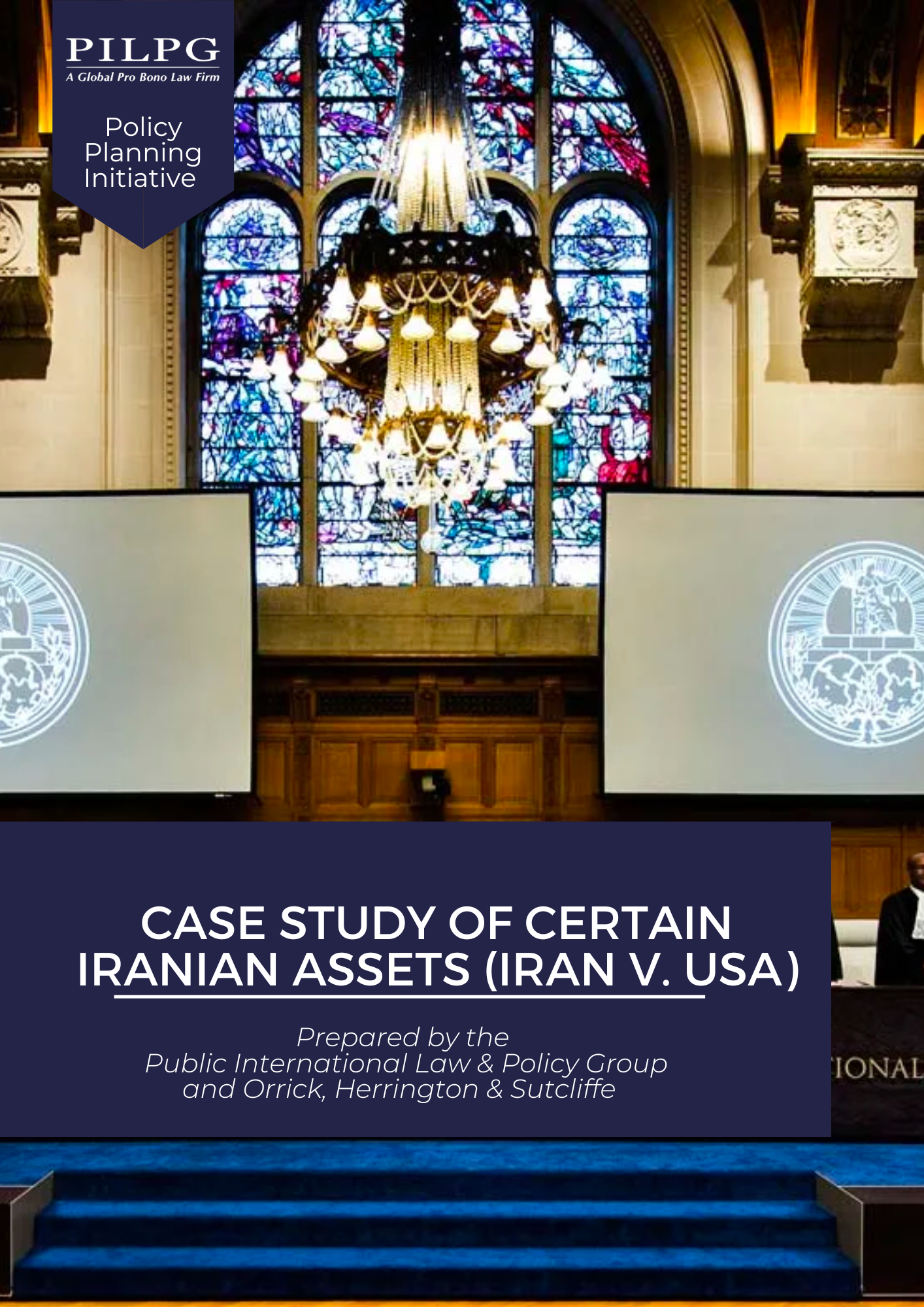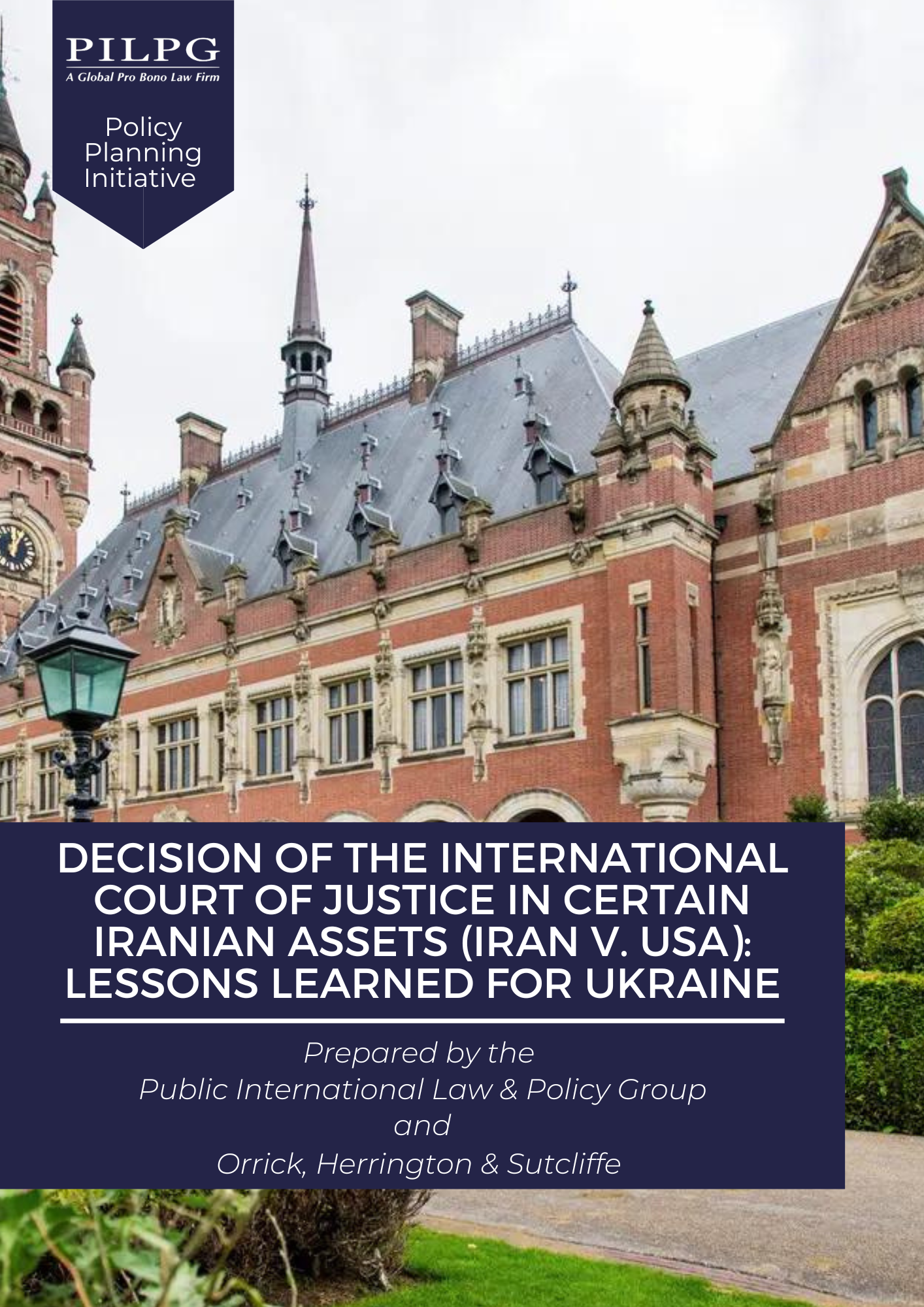Sanctions, economic relations, and reparations have been key focus areas since the beginning of Russia’s war in Ukraine and will require significant negotiation. Fundamental issues to be negotiated will include the lifting of sanctions or their use as compliance mechanisms; possible frameworks for future economic relations between Ukraine and Russia; and reparations for damages caused by Russia’s aggression. Review the resources on this page to gain insights and options for approaching these issues in a future negotiation between Ukraine and Russia.
Click on the Peace Agreement Drafting Note of interest to find information on the strategies that could be adopted when addressing issues related to economic relations and sanctions during future negotiations.
PILPG Policy Planning, in collaboration with our law firm partners, have produced legal memoranda that offer in-depth legal analysis on the existing international law and several domestic legal frameworks, as well as relevant past precedents on repurposing foreign assets.
PILPG brought together the best legal and policy minds to assist Ukraine in considering the international and domestic legal frameworks that govern the repurposing of frozen Russian assets. The PILPG Sanctions and Frozen Assets Policy Planning Working Group, in collaboration with our friends and colleagues in Ukraine, engaged international law practitioners, former ambassadors, sanctions experts, national security experts, as well as the leading minds focused on Ukraine’s reconstruction to develop a range of materials on the repurposing of frozen Russian assets, culminating in a summary policy planning white paper. This expert working group is one in a series of Ukraine policy planning working groups within the PILPG Policy Planning Initiative. These working groups focus on providing practical guidance on specific conflict and post-conflict policy questions Ukraine is likely to face in the future.
PILPG is proud to announce the involvement of distinguished experts in the Policy Planning Sanctions and Frozen Assets Working Group for Ukraine. These include Scott Anderson from Lawfare and the Brookings Institution; Daniel Fata from Fata Advisory and the Center for Strategic and International Studies, Igor Lukšić, PILPG Senior Peace Fellow and Former Prime Minister of Montenegro (2010-2012); Ambassador Zorica Marić-Djordjević, PILPG Senior Legal Adviser, and Former Head of the Permanent Mission of Montenegro and Special Representative of Montenegro to the UN Human Rights Council (2013-2015); Robert Petit, PILPG Senior Peace Fellow, and Former International Co-Prosecutor at the Extraordinary Chambers in the Courts of Cambodia; and Mark Vlasic, PILPG Senior Peace Fellow, Adjunct Professor of Law at Georgetown University, and Executive Producer of “Blood & Treasure” for CBS and Prime.
This section includes links to PILPG expert roundtables and a Just Security blog posts written by PILPG experts related to economic relations, sanctions and reparations below.
Click on the image of the roundtable or blog to access its content.















